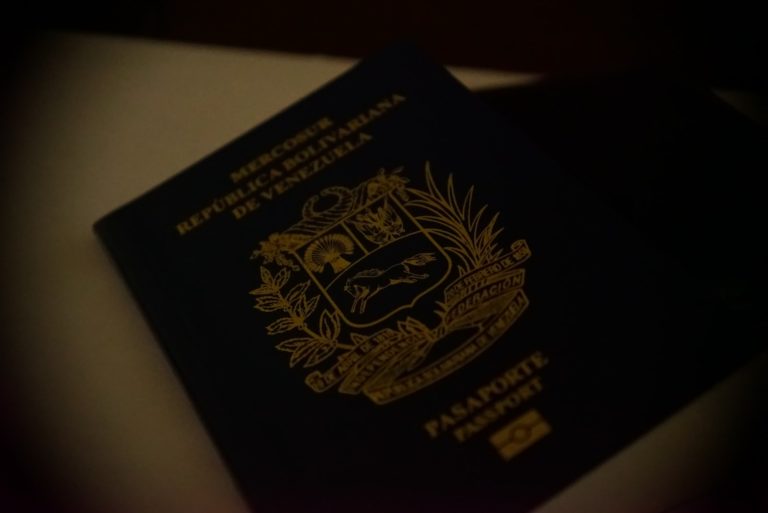What is an Alien Registration Number?
How understand the difference between your A-number and your USCIS case number
You will be required to enter your Alien Registration Number (commonly known as an “A-number,” “A#,” or “USCIS number”) on any paperwork or petitions you file with U.S. Citizenship and Immigration Services after submitting your original application for a green card (USCIS).

The Our Love Visa Experience
Our Love Visa has a simple mission. We believe it should not be difficult or expensive to bring couples together. OLV has helped thousands of couples navigate the immigration process, and it would be a privilege to help you too. Join the OLV Community today!
What is an Alien Registration Number?
An Alien registration number is a non U.S. citizen’s identification number. It serves to help the U.S. government keep track of the many immigration petitions and applications that a person may submit over time. Every immigrant is assigned a unique number, which is their identification number for life.
- Who gets an alien registration number?
- How do I get an alien registration number?
- When do I get an alien registration number?
- Where can I find my alien registration number?
- What is the difference between A-Numbers and USCIS case numbers?
- Is the alien registration number the same as Form I-94?
- What is an alien registration card?
- Is my alien registration number on my passport?
- Will my alien registration number expire?
- Where can I find the alien registration number on my employment authorization document (EAD)?
Who Gets an Alien Registration Number?
Every applicant for a green card receives an Alien Registration Number, regardless of whether their application is family-based, employment-based, or for Asylum or refugee status. An Alien Registration Number is issued to every immigrant who plans to reside permanently in the United States.
Most temporary visitors (for example, those on a B-1/B-2 visa) don’t get an Alien Registration Number. The exception is international students on F-1 student visas.
Even though F-1 visa holders are not green card applicants (yet), those who get employment authorization (work permit) are assigned an Alien Registration Number.
How do I get an Alien Registration Number?
USCIS assigns you an Alien Registration Number when you apply for certain immigration benefits or statuses. Typically you only get an A number when you apply for a green card, although you may be assigned an A#, for example, when on an F-1 visa or as a DACA beneficiary.
When Do I Get an Alien Registration Number?
Typically, when someone applies for a green card, they get assigned an Alien Registration Number. You may already have an A-number if you previously obtained work permission while in the U.S. on an F-1 student visa. This is common for international students who worked under the OPT program (Optional Practical Training) after completing their studies.
Your Alien Registration Number is shown on the USCIS receipt notice you receive for your green card application (Form I-485 Receipt Notice). You typically receive your receipt notice within 30 days after filing.
If you are married to a green card holder, you will not receive an A number until you file your I-485 application (i.e. until your I-130 petition is approved and an immigrant visa number is available.)
If you filed for a spouse visa using consular processing, meaning from outside of the U.S., when you appear for your interview at the U.S. Consulate, your Alien Registration Number will be given to you then. This applies regardless of whether your spouse has a green card or is a U.S. citizen. Your Alien Registration Number may also be found on the visa stamp that the consulate sticks in your passport.
Where Can I Find My Alien Registration Number?
Once you’ve submitted a green card application, your Alien Registration Number will appear on all correspondence from USCIS, including the notification that your application has been received.
Your Alien Registration Number (abbreviated “A#”) will be displayed prominently towards the top of the first page on the majority of paperwork or correspondence you receive from USCIS.
For consular processing applicants, i.e. spouse visa applicants filing from outside of the U.S., your A-number will be on the Immigrant Data Summary and USCIS Immigrant Fee handout you get when you go to your interview at the U.S. Consulate. Once your application is approved, you will find your A-number on the visa stamped in your passport.
Your Alien Registration Number (labeled “USCIS#”) will be printed on both the front & back of your actual green card once you get it.
If you can’t find any USCIS notices, any of your visas, or other documents that might have your A Number, you can obtain a copy of your immigration file using the Freedom of Information Act (FOIA). Additionally, you may seek assistance by making an InfoPass appointment at the USCIS office nearest you. (This option won’t be accessible to everyone since USCIS is working to do away with self-scheduled appointments.)
A-Numbers vs. USCIS Case Numbers
Your USCIS case number is assigned to your application, while your Alien Registration Number is issued to you. Each application you file with USCIS receives a unique case number even if, for instance, you file your I-130 and I-485 together for your marriage-based green card (Adjustment of Status) but your individual A-number will not change.
Your A-number and USCIS case number look different. A-numbers are always 7, 8, or 9-digit numbers and may be shown starting with “A”. Your USCIS case number has 13 characters and starts with three letters (such as “MSC” or “EAC”) and then ten digits.
When filling out your applications, please make sure you are using the correct number. Your A number is sometimes called your “USCIS number”. This is still different from USCIS “case number”.
NOTE: The Alien Registration Number is not the same as an SSN (Social Security Number). As part of your green card application, you may also submit an application for an SSN and a work permit.
Is the Alien Registration Number the same as Form I-94?
No, your admission record number, which may be obtained on Form I-94, has 11 digits, while your number is either 7, 8, or 9 digits long. The U.S. Customs & Border Protection (CBP) organization uses the admission record number, a special identification, to track legal entry into the country. Most I-94 data are available on the Department of Homeland Security website.
What’s an Alien Registration Card?
Your green card (Form I-551) or permanent resident card is also an alien registration card. Your A-number may be found on your green card, which explains why it’s sometimes referred to in this manner. You may look up the definition of a word or phrase in the USCIS Glossary if you’re ever unclear about its meaning.
Is my Alien Registration Number on my passport? If so, where is it?
If you register for a green card from outside the country, your passport should already have an immigrant visa stamp with your A-number. However, if you apply for your green card from inside the US, you may not have such a stamp.
You may see an illustration of the machine-readable immigrant visa (MRIV) that will be inserted into your passport below. The A-number in this illustration is “00000473.”
Will my Alien Registration Number expire?
No. Once you get a number, you will always be known by that number. However, your immigration status can run out. For example, if you have a green card, you must renew it every ten years unless you are a conditional permanent resident (CPR). In this case, you must submit Form I-751 to remove the limitations governing your permanent residence around two years after getting your first permission.
Where can I find the Alien Registration Number on my Employment Authorization Document (EAD)?
The A-number is on the front of your EAD, as seen below, just under “USCIS#.” The number in the example provided here is “000-000-701.”

Our Love Visa makes your immigration process easy, fast, and worry-free, guaranteed. We provide you with complementary tools and resources free that help you plan your future in the United States together. Learn about how OLV is helping couples through their immigration journey.







